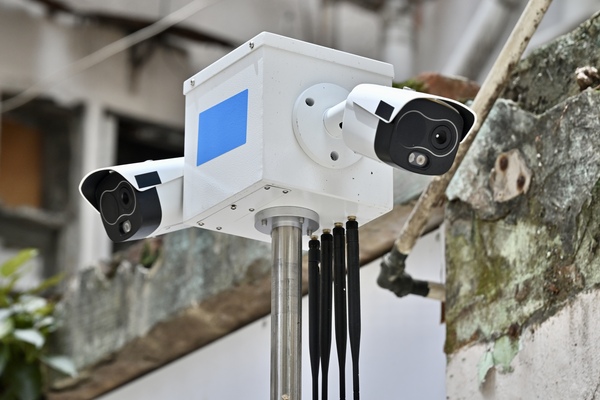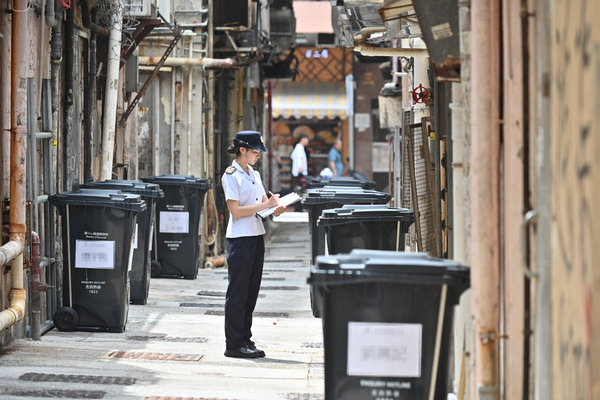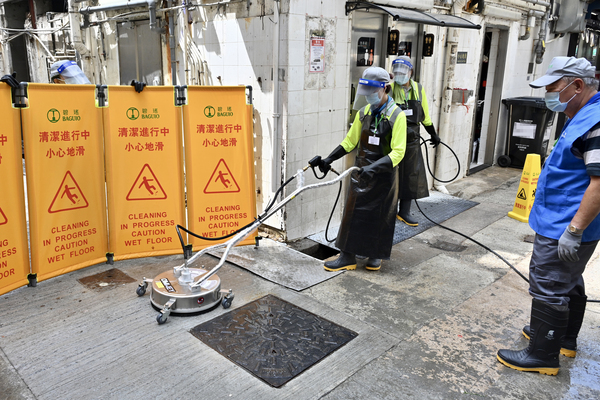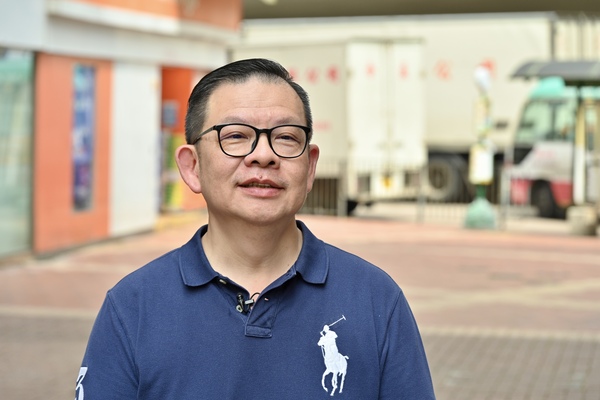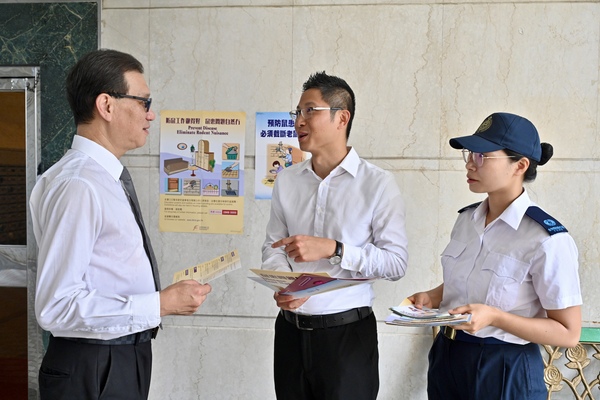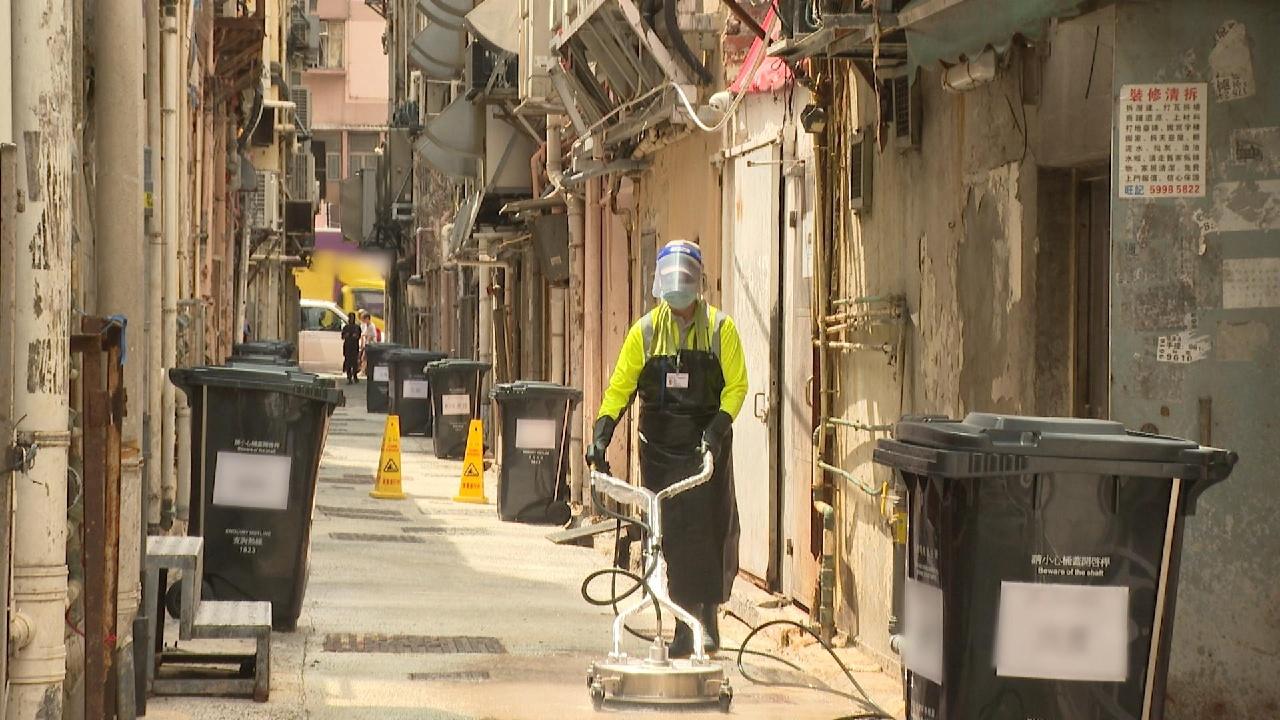District governance: New tech keeps streets clean, controls pests
Street hygiene and anti-rodent work are key aspects of the Government’s district governance, with the Food & Environmental Hygiene Department (FEHD) playing a significant role.
Cleaning tech
A recent inspection carried out in Tsuen Wan highlighted the department’s progress, with the use of advanced cleaning technologies and enhanced pest control measures.
FEHD outsourced cleansing workers used a newly introduced pressure washer surface cleaner to thoroughly remove stubborn stains from the streets.
One of the workers, Chu Chui-yin noted that using the cleaner instead of the previous method of dragging hoses to wash the streets meant they were able to work more efficiently while also obtaining a better cleaning result.
“What’s more, the cleaner is light, handy and uses less water, which makes our work much easier than the former practice of scrubbing the streets hard to clean the stains.”
Waste management
In an effort to maintain the cleanliness of the city’s alleyways, the department has rolled out a trial scheme to regulate the disposal of waste generated by food premises.
Under specific conditions, food premises are permitted to place large containers in adjacent back alleys for storing waste, which are then collected by cleaning workers hired by the premises.
Department personnel regularly inspect these areas to ensure proper waste management, while strict enforcement targets illegal dumping and clutter in back alleys.
Positive response
Chairman of the Tsuen Wan South Area Committee William Chan lauded the initiative.
“After the implementation of the programme on the black spots, the FEHD has proactively tackled the problem, resulting in a marked improvement in the hygiene conditions of the community.
“Streets are clean and hygienic, rear lanes are free from piles of miscellaneous items and stubborn stains, and the condition of road surfaces has improved. Both traders and residents have reported a drastic reduction in rodent sightings.”
Recent data showed a substantial increase in the number of rodents caught in 2024. Across the city, approximately 89,600 live rodents were captured - about 40% more than in 2023.
Near Hau Tei Square in Tsuen Wan, around 270 rodents were caught in 2024, a threefold increase from the 89 recorded in 2023, demonstrating the effectiveness of new control measures.
AI support
Apart from traditional trapping and baiting, the FEHD has introduced thermal imaging cameras equipped with artificial intelligence (AI) technology as a more accurate means of detecting rodent activity.
FEHD Chief Health Inspector (Tsuen Wan) So Yeung-fung explained that the cameras capture images from 7pm to 7am over three consecutive nights. AI analysis of the thermal images then enables staff to identify the presence of rodents more precisely than conventional methods such as searching for gnaw marks on sweet potato bait.
“Staff can get a clear picture of the rodents’ activities and their dispersal routes at the locations concerned, which enables them to take more appropriate anti-rodent actions.”
Fruitful partnership
Community involvement remains a key component of success. The FEHD partners with property management companies to promote participation in routine anti-rodent efforts.
Management Office of Tsuen Wan Plaza Anti-rodent Liaison Ambassador Ran Lau pointed out that the Anti-rodent Charter launched by the FEHD has already yielded good results.
“Since our estate signed the charter in February this year, the FEHD has deployed staff to our estate to provide free technical support and offer professional advice on our rodent prevention and control measures, significantly enhancing the overall effectiveness of rodent prevention.
“Our liaison ambassadors have also attended seminars organised by the FEHD to keep abreast of new anti-rodent information and exchange our experience with other estate management offices, thereby increasing rodent prevention capability in the community.”
